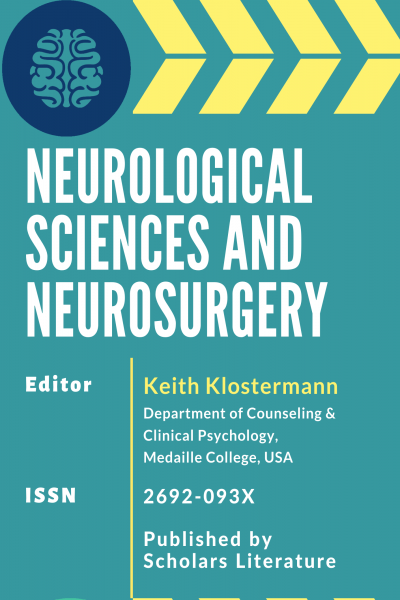Journal Highlights
Neurological Sciences and Neurosurgery aims to deal with the topics associated with the diagnosis and treatment of all categories of conditions and disease involving the nervous system, which comprises the brain, the spinal cord, and the peripheral nerves. Furthermore, the journal also covers the topics associated with the management and tertiary care policies associated with neurological disorders and neurosurgery.
Molecular and cellular neuroscience
Application of molecular biology to explore how genes, signalling molecules, and cellular morphology influence the nervous system.
Systems neuroscience
It is a subdiscipline of neuroscience and systems biology that studies the structure and function of neural circuits and systems.
Cognitive neuroscience
Cognitive neuroscience is the scientific field that is concerned with the study of the biological processes and aspects that underlie cognition, with a specific focus on the neural connections in the brain which are involved in mental processes.
Behavioral neuroscience
It is the application of the principles of biology to the study of physiological, genetic, and developmental mechanisms of behavior in humans and other animals.
Computational neuroscience
Computational neuroscience is a branch of neuroscience which employs mathematical models, computer simulations, theoretical analysis, and abstractions of the brain to understand the principles that govern the development, structure, physiology, and cognitive abilities of the nervous system.
Clinical neuroscience
Clinical neuroscience is a branch of neuroscience that focuses on the scientific study of fundamental mechanisms that underlie diseases and disorders of the brain and central nervous system.
Translational neuroscience
Translational neuroscience is the field of study which applies neuroscience research to translate or develop into clinical applications and novel therapies for nervous system disorders.
Autoimmune neurology
Autoimmune neurology encompasses immune-inflammatory diseases of the central nervous system other than multiple sclerosis.
Neuroinflammatory diseases
Diseases such as multiple sclerosis, Alzheimer’s, and Parkinson's, which affect the brain and spinal cord, are among the most serious health problems facing society today.
Neuromuscular disorders
Diseases affecting the peripheral nervous system, which consists of all the motor and sensory nerves that connect the brain and spinal cord to the rest of the body.
Neurocritical care
Neurocritical care is a medical field that treats life-threatening diseases of the nervous system and identifies, prevents, and treats secondary brain injury.
Pediatric neurology
Deals with the diagnosis and management of neurological conditions in neonates (new-borns), infants, children, and adolescents.
Neuro-oncology
Neuro-oncology is the study of brain and spinal cord neoplasms.
Spinal cord disorders
Spinal cord disorders are conditions that cause damage and deterioration to the spinal cord. These conditions may include tumors, spinal stenosis, and herniated discs.
Sleep neurology
Deals with the effect of sleep on the brain and nervous system in the body. Also focuses on diagnosing and treating sleep disorders and other sleep-related concerns.
Epilepsy
Epilepsy is a neurological condition involving the brain that makes people more susceptible to having recurrent unprovoked seizures.
Cerebrovascular neurology
Deals with all disorders in which an area of the brain is temporarily or permanently affected by ischemia or bleeding and one or more of the cerebral blood vessels are involved in the pathological process.
Neuropsychiatric disorders
Deals with broad range of medical conditions that involve both neurology and psychiatry. Common neuropsychiatric disorders include seizures, attention deficit disorders, and cognitive deficit disorders.
Neurosurgery
Neurosurgery is a surgical specialty that involves the conservative and surgical management of a wide variety of disorders affecting the brain, the spinal cord and spinal column, and the peripheral nerves.


